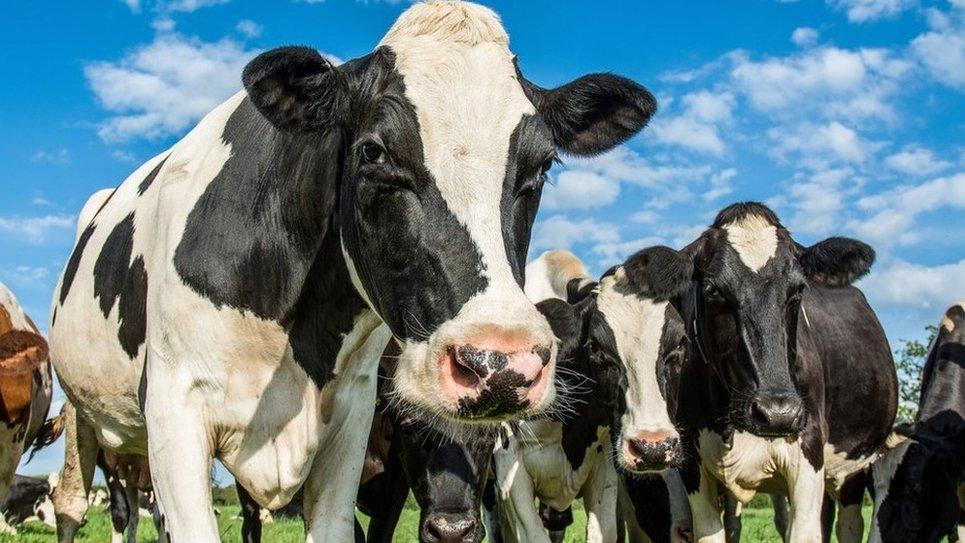Australia trade deal: Welsh identity at risk says Drakeford
- Published
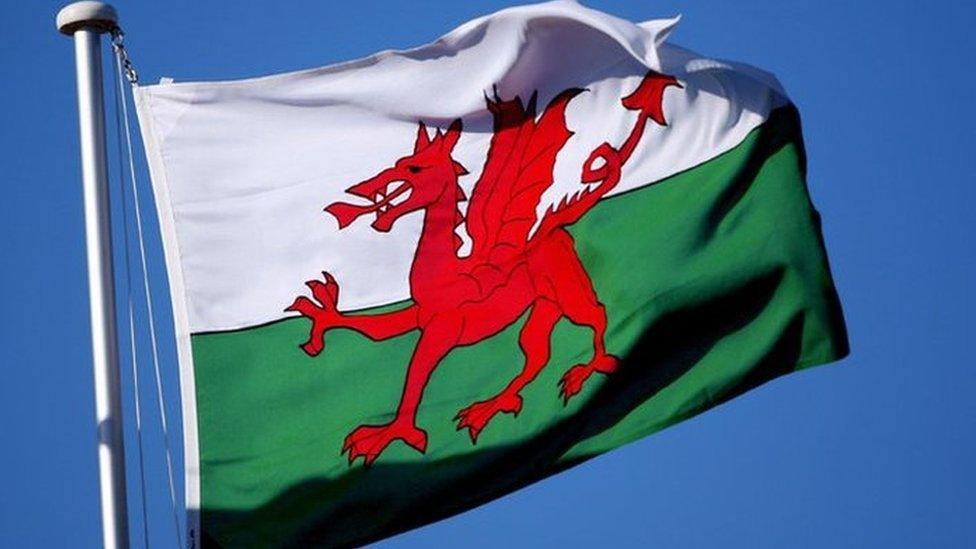
Mark Drakeford said the things that make Wales 'Wales' were at stake
Wales' cultural identity is at stake in the row over an Australian trade deal being finalised by the UK government, the first minister has warned.
Mark Drakeford is concerned about both the economic effects and the "impact on the future of our communities".
He opposes proposals to give Australian lamb and beef producers access to UK markets without import taxes or quotas.
Welsh Secretary Simon Hart said no deal had been done yet, but representations had been "heard loud and clear".
Currently imports from Australia face tariffs, making products such as beef and lamb more expensive to buy in UK shops and supermarkets.
Following the UK's exit from the EU, the UK government is seeking to sign free trade deals with other countries which would remove or lower tariffs.
Its Department for International Trade has promised any deal signed with Australia would "not undercut UK farmers or compromise our high standards".
But speaking to BBC Radio 4's Today programme on Thursday, Mr Drakeford expressed concern about the possible impact on the identity of "Welsh speaking heartlands".
"We're talking here about the things that make Wales 'Wales'. That's what's at stake here," he added.
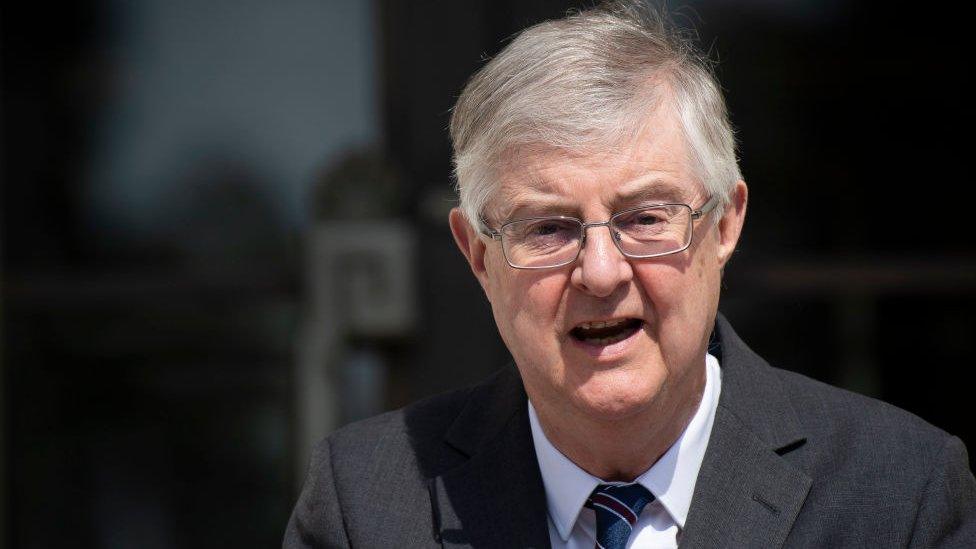
Mark Drakeford said he has no problem with "fair trade deals"
The first minister said he wanted to see "a level playing field", which meant a tax and quotas regime that takes into account the difficulty faced by Welsh producers in competing with their Australian counterparts.
"How can our hill farmers compete with Australian climates, how can our hill farmers compete with the space that is available for the huge farms that they have in Australia?" he asked.
"How can we compete when our standards of animal welfare and environmental standards are higher than they are in Australia?"
Mr Drakeford also warned that the proposed free trade deal with Australia could compromise Welsh lamb farmers' access to their primary export market, which is continental Europe.
"Another anxiety we have is that if you allow products in the United Kingdom from places in the world that have lower standards, that will have an impact on our ability to trade into those much more important markets," he said.
"We have no problem with trade deals elsewhere in the world, provided they are fair trade deals, and that's what's at the heart of our anxiety."
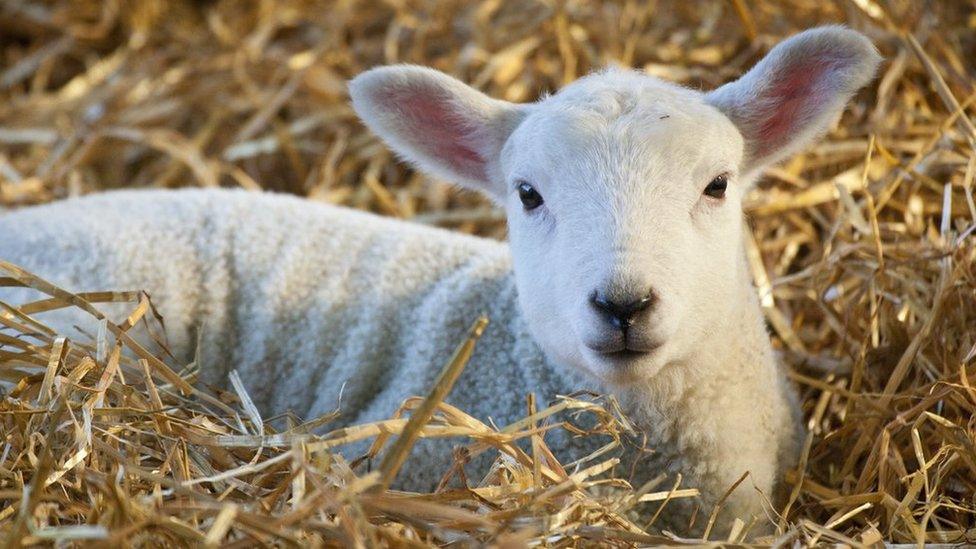
There are fears the Welsh lamb industry could suffer from cheaper Australian imports
Mr Drakeford said he had expressed his concerns to senior UK government minister Michael Gove, who had promised to relay them to his fellow ministers.
The prime minister's official spokesman said the UK was seeking deals "tailored so that they can best meet the needs of the British people".
"We want to secure an ambitious deal that benefits businesses and consumers across the UK, and of course any agreement will include protection for the agriculture industry," he said.
Fiona Simpson, president of Australia's National Farmers' Federation, told Today she wanted to "re-establish a very strong trade relationship with the UK, which we had before the UK joined the EU".
But Australian farmers were "just not able to ship our produce in any sort of a quantity to the UK", Ms Simpson said, adding: "It's just way too expensive and way too far."
'No ambition'
Prime Minister Boris Johnson defended the proposed the deal in the House of Commons on Wednesday.
When Plaid Cymru MP Hywel Williams asked him to rule out offering tax free access to Australian meat imports, Mr Johnson suggested Mr Williams had "no ambition" for opening new markets to Welsh lamb farmers.
"I will back British farmers and Welsh farmers in exporting their fantastic lamb around the world," the prime minister said.
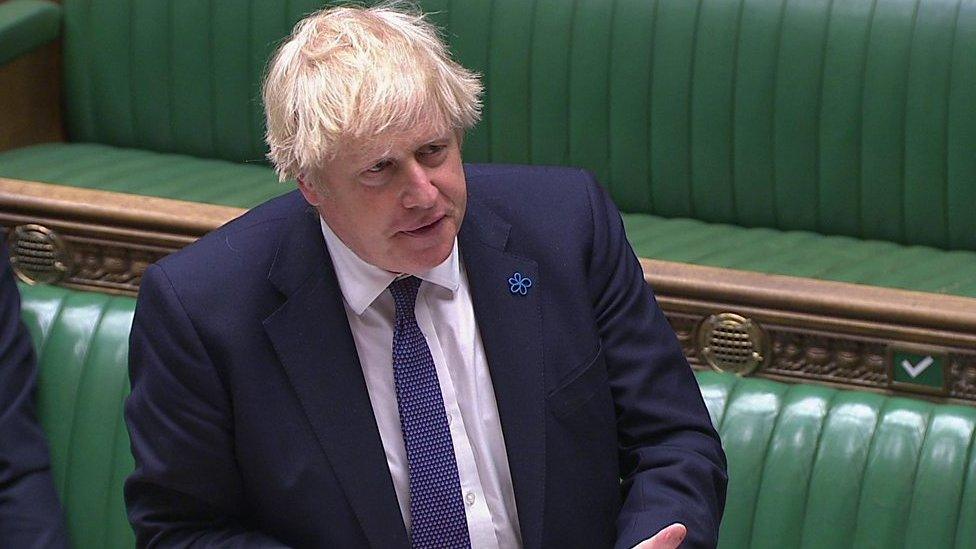
Boris Johnson said Welsh farmers should be able to find new markets for their produce
"It's a disgrace that not a single morsel of Welsh lamb has passed the lips of the Americans in the last 20 years or more.
"What about China? Has he no ambition for the people of this country or for the people of Wales or for Welsh farmers?"
The UK government cabinet met on Thursday where they discussed fears about the trade deal, with ministers believed to be split on the matter.
Later, Mr Hart said there had been "an awful lot of speculation" but stressed that "no deal has been done" yet.
"Representations have been made loud and clear, they've been heard loud and clear," he said.
"There are many post-Brexit opportunities which are presenting themselves to the rural and agricultural community in Wales, but I think it's always best to wait and assess the facts, rather than feast on the numerous alternative views which are being expressed, I'm afraid, left, right and centre at the moment."
Meanwhile Fay Jones, a Welsh Conservative backbench MP for Brecon and Radnorshire, said farmers were the "lifeblood" of the rural economy and the UK government was "adamant" its trade deals would not "undercut UK farming".
She told BBC Radio 4's The World at One programme: "My farmers are ambitious, they want to trade around the world, they want to see these deals agreed quickly but fairly."
- Published20 May 2021
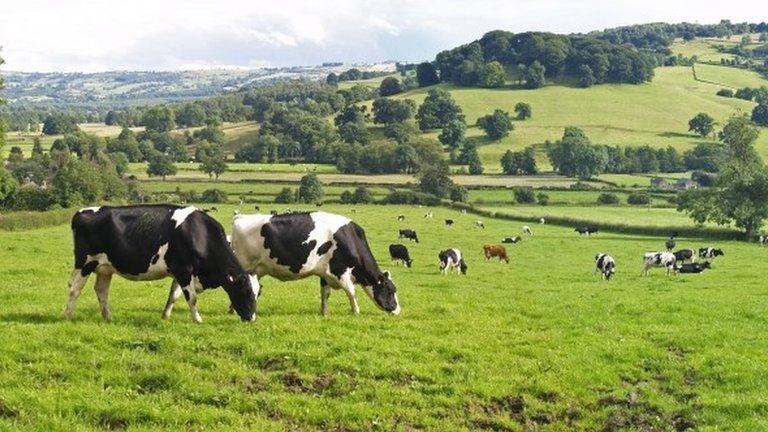
- Published19 May 2021
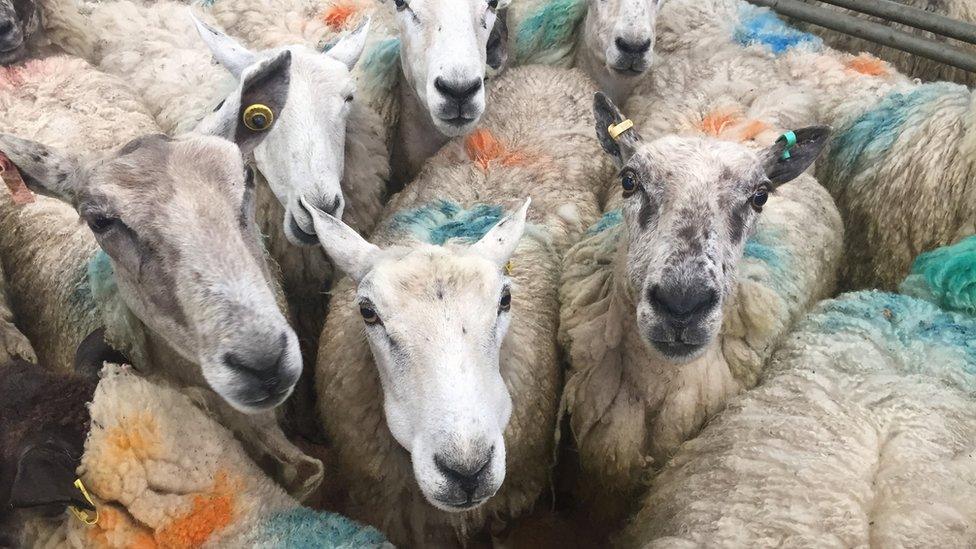
- Published19 May 2021
